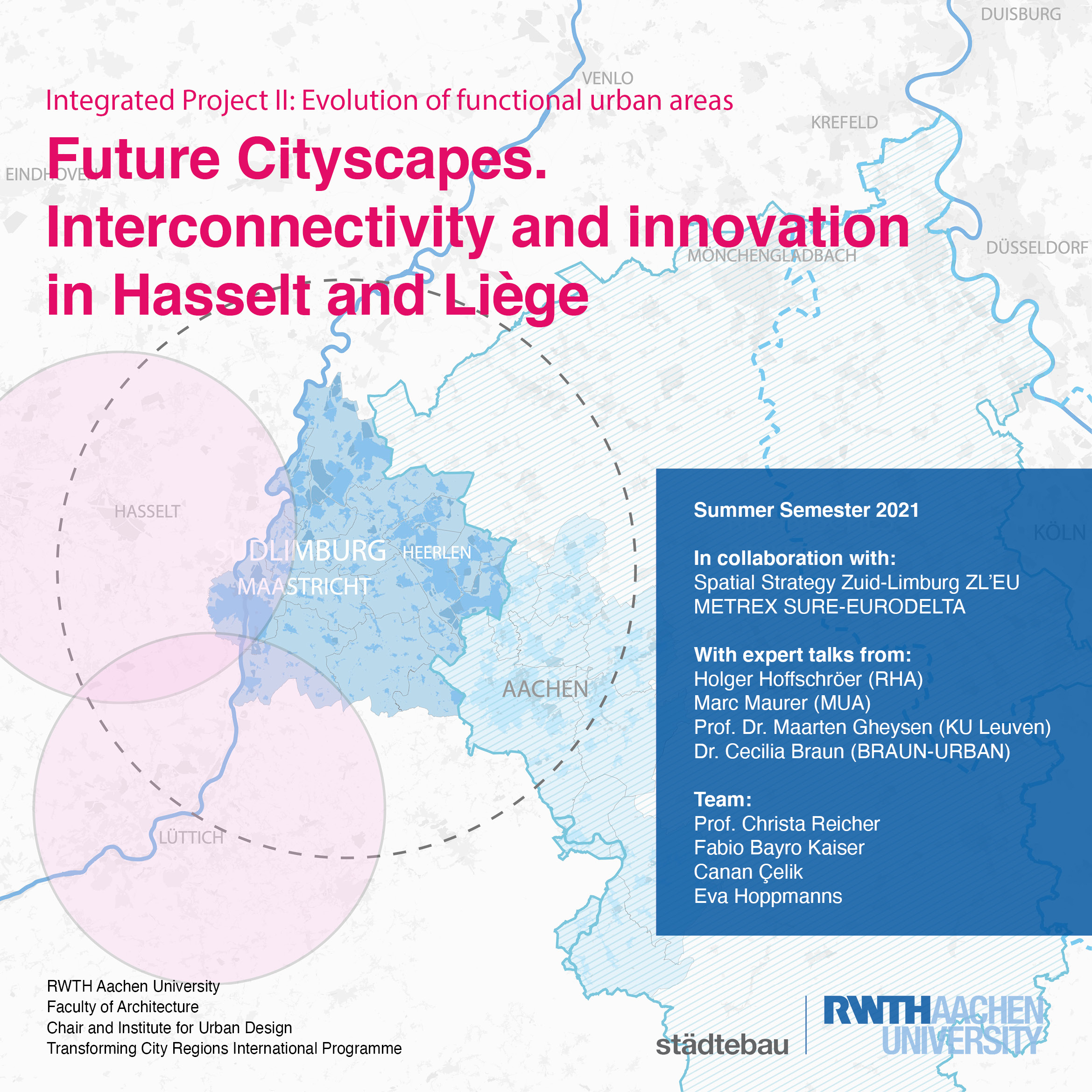Future Cityscapes. Interconnectivity and innovation in Hasselt and Liège
TCR News April 12th
Integrated Project II: Evolution of functional urban areas
The Eurodelta is the most densely urbanized area in North Western Europe and a highly interconnected territory with approximately 45 million inhabitants. It stretches from Western Germany to the Netherlands, Belgium and Northern France along agglomerations in the river basins of the Rhin, Scheldt and Meuse. This diverse and complex territory creates a common interest for a cross-border thinking and calls for innovation and action both in terms of territorial governance but also in terms of spatial strategies and design.
Is the future of the city the region? Within the Spatial Strategy Zuid-Limburg ZL’EU framework lead by the Chair and Institute for Urban Design and in collaboration with the METREX SURE-EURODELTA network, the Integrated Project II will address this question for the Belgian cities of Hasselt and Liège, which are partner cities of the EUREGIO Meuse-Rhin. The main rationale of the project is that spatial development does not end with national boundaries nor language barriers, and that cross-border thinking is, indeed, essential for improving interconnectivity of the region as a whole but also to tackle inclusive, sustainable and resilient development.
Thematic focus: Inhabitants and Social Cohesion | Mobility and Infrastructure | Landscape and Biodiversity | Economy and Structural Change | Research and Innovation | Culture and Identity
Cross-cutting issues: Cross-border cooperation | Internationalization | Climate Change | Innovation und Digitalization
The Project will unfold in five phases:
i) study of the theoretical and methodological background of the topic which shall deepen individual understanding and conceptualization of the problem reflected in the case studies.
ii) analytical phase of the real case stud which involves examination of the different aspects of the problem: spatial, social, environmental, technical, economic.
iii) Participation in the Next Generation Podium for Eurodelta, which consists of practical experience, development of the initial possible solutions and application of all appropriate design methods, and dialogue between experts, practice and academia, from different generations.
iv) Finalization of the project and discussion with all involved interdisciplinary professionals representing different fields of study.
v) presentation of the project and public discussion on proposed solutions and design.
Learning Objectives:
The goal of the project is to equip students with the design and solution-oriented skills which will be dealing with the scale of functional urban areas, ongoing redefinition of the city and change of urban form seen from the regional perspective. Students shall prove they can conceptualize the problem, analyze real case studies, apply appropriate methodologies and design techniques, develop scenarios for the future transformation and prepare design which can help with the implementation of this scenario. The additional objective is to prepare students to team working while taking the individual responsibility for the specific task. Also, important skill is to be prepared to the discussion with the representatives of different disciplines while having clear spatial perspective. Finally, as a result of the module the students shall be able to deliver a convincing public presentation of their project and debate their solution with the audience.
